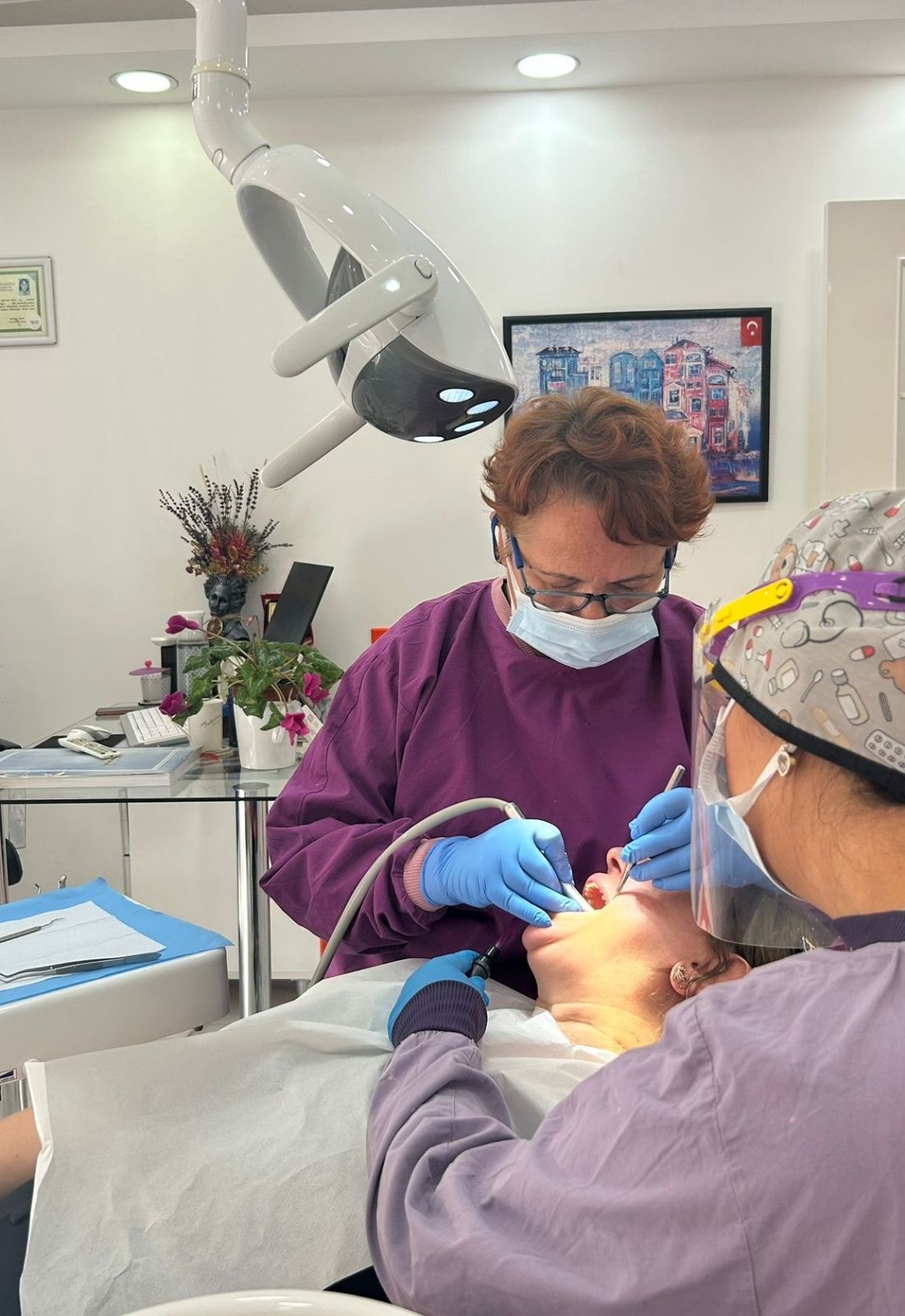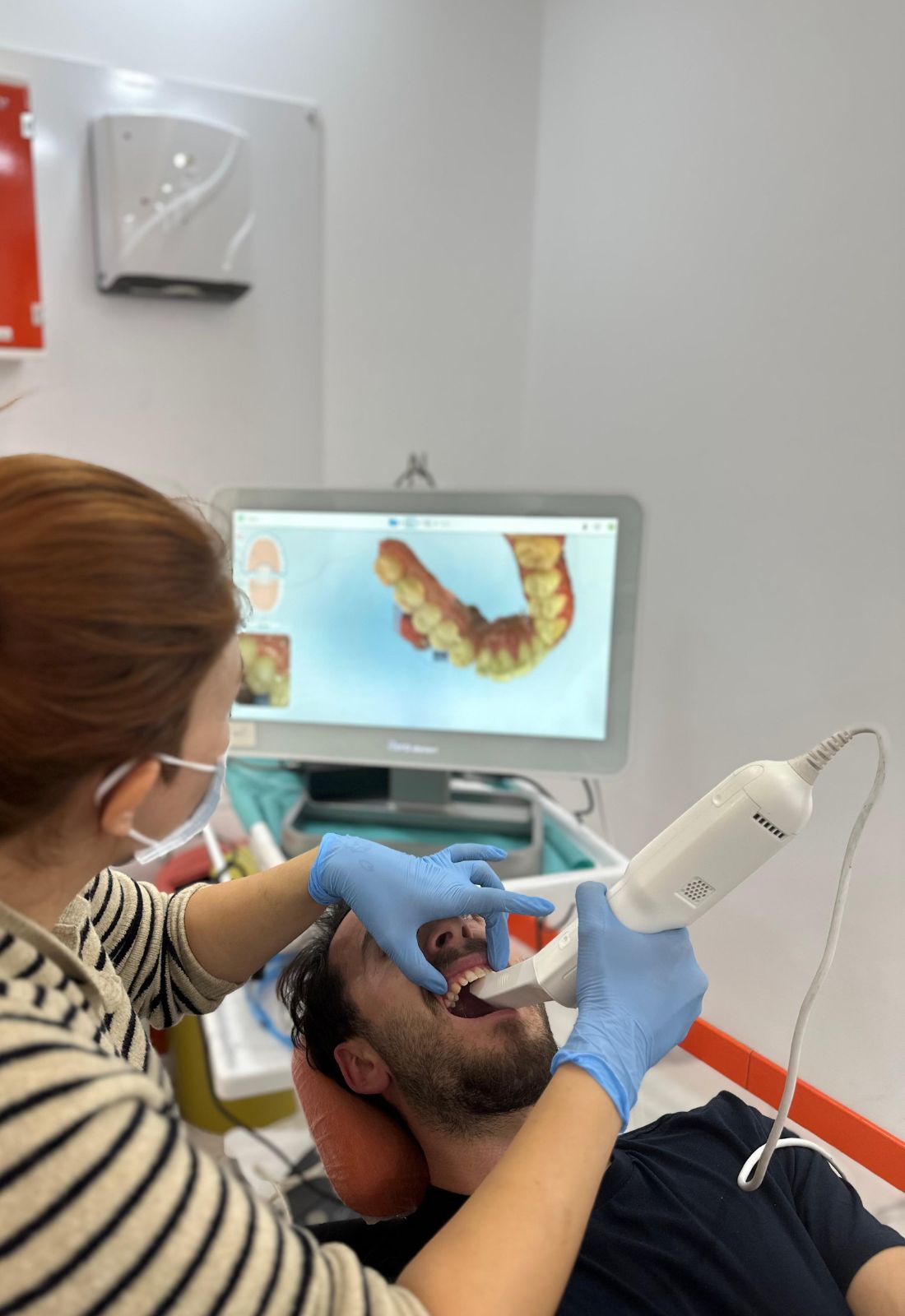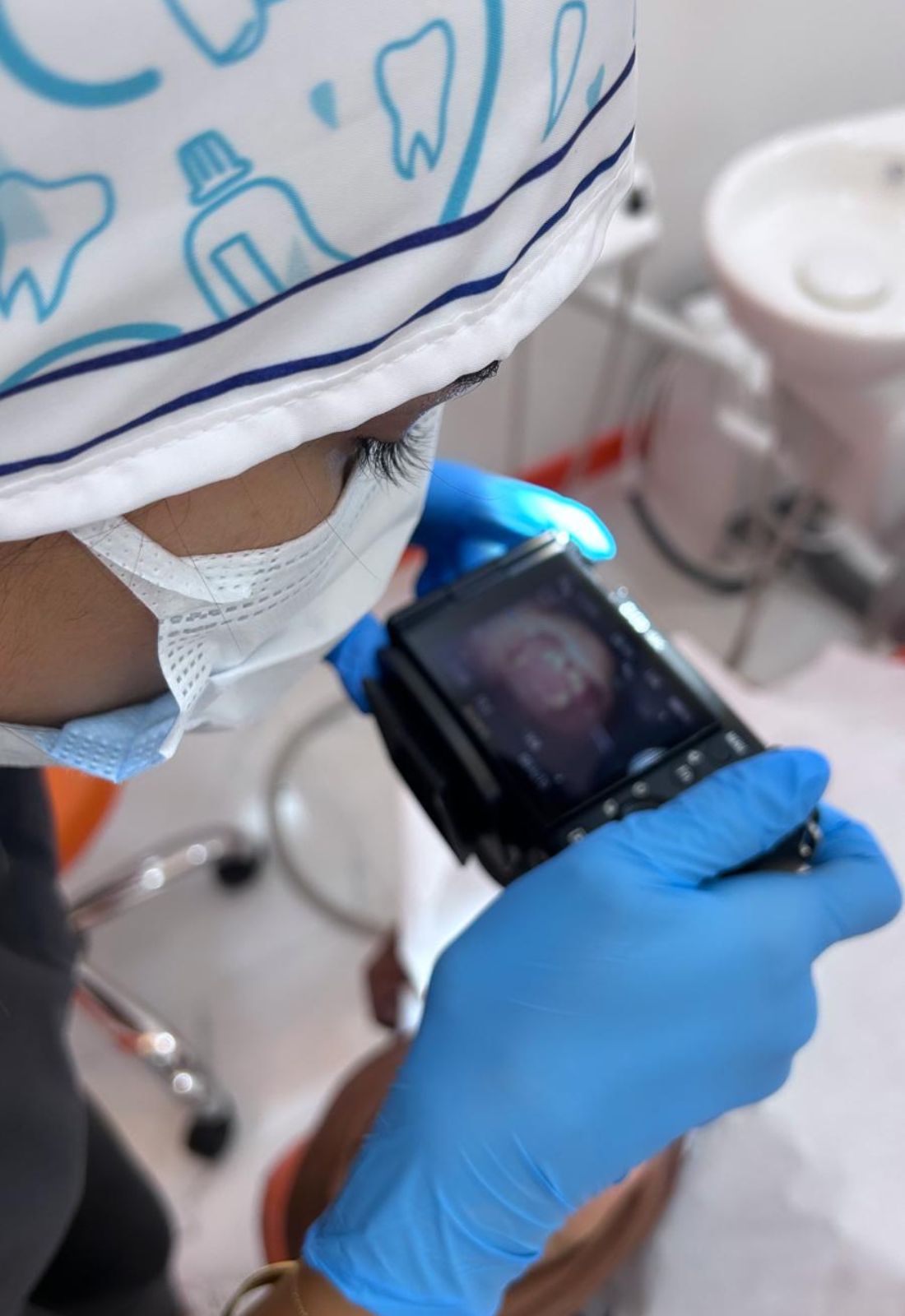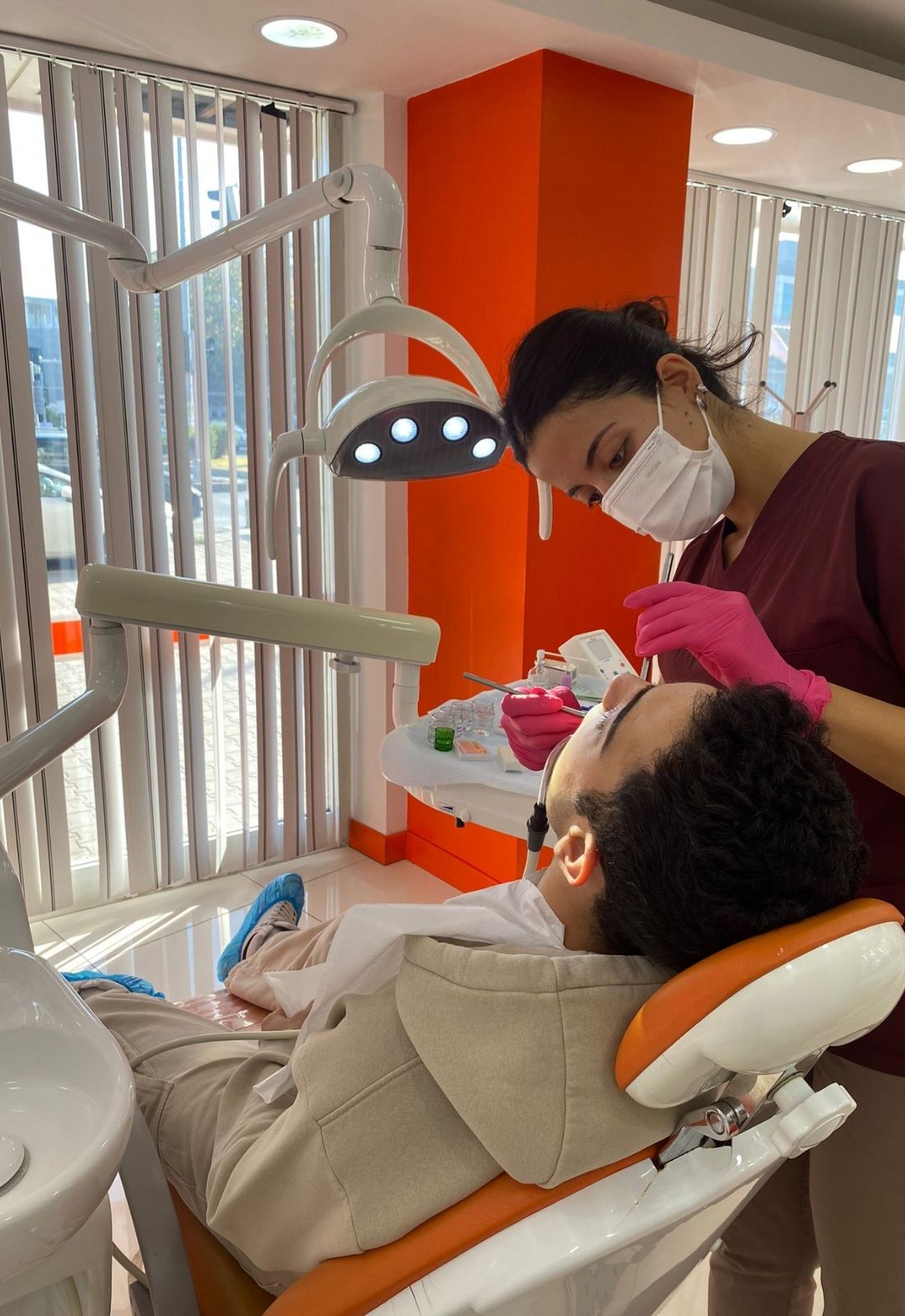Endodontics focuses on the diagnosis and treatment of diseases of the dental pulp and surrounding tissues. Today, technological advancements, such as 3D CBCT imaging, which allows detailed examination of root canals, play an important role in the endodontic diagnosis process. Treatment stages include isolation, access preparation, mechanical shaping, and chemical cleaning. In this process, the use of modern biomaterials and flexible rotary files ensures optimal results. Additionally, regenerative endodontic techniques that promote cell regeneration aim for long-term success by preserving the natural structure of the tooth. These innovations enhance treatment efficacy, supporting patient health.

Endodontics is a specialized branch of dentistry that encompasses the diagnosis, treatment, and preventive methods necessary to maintain the health of the dental pulp and surrounding tissues. When the pulp, which contains the tooth’s nerves, blood vessels, and connective tissues, is damaged due to various factors, endodontic intervention is required. The most common treatment in such cases is root canal therapy, which involves removing the damaged pulp and disinfecting the canal. This treatment preserves the natural tooth and prevents the spread of infection.
Key aspects of endodontics include:
The importance of endodontics lies in preventing the spread of infection to surrounding tissues and ensuring long-term dental health. Endodontists treat cases that may be challenging for general dentists to manage due to the complex structure of the tooth. Thanks to technological advancements, endodontists work with precision tools such as microscopes and digital imaging systems, effectively managing complex cases and increasing success rates.
It is important for patients experiencing persistent or severe tooth pain to consult an endodontist. This type of pain often indicates infection in the pulp tissue or deep root issues, and the endodontist focuses on saving the tooth using specialized techniques. On the other hand, extreme sensitivity to hot or cold may also be a sign of pulp inflammation or damage, requiring endodontic treatment.
Endodontists also intervene in cases of severe dental infections, gum swelling, or abscesses to prevent further spread of infection. Tooth discoloration can also be an indication for endodontic intervention. With root canal therapy or other endodontic procedures, an endodontist can restore the tooth’s color and health.
In complex and recurring procedures, such as root canal therapy, endodontists increase the success rate by using advanced imaging techniques and microscopes. Endodontists perform more root canal treatments weekly than general dentists due to their training and experience. This expertise makes them ideal specialists for preserving the natural tooth structure and managing pain.
*We recommend that you fill in all fields so that we can get back to you in the best possible way.
Root canal treatment is a step-by-step procedure aimed at saving a tooth by removing the infected or inflamed pulp tissue. The procedure begins with creating an access opening on the crown to reach the pulp chamber. The infected pulp tissue is carefully removed using special instruments, relieving pressure inside the tooth and reducing pain.
Next, the root canals are thoroughly disinfected. Various irrigants are used to completely remove bacterial biofilm and debris:
These chemical solutions dissolve organic tissue in the canals, aiding in surface cleaning. Irrigants are activated using laser or ultrasonic methods to reach microscopic spaces, ensuring disinfection in areas where manual cleaning cannot reach.
After disinfection is completed, the canals are dried and filled with a biocompatible material, typically gutta-percha, to provide a watertight seal that prevents bacteria from re-entering the canals. In the final stage of treatment, a restoration is applied to protect the tooth from fractures, usually involving a crown or filling.
Modern root canal therapy is considered a painless procedure due to advanced anesthesia methods. Technological advancements have improved patient comfort, making the treatment a routine procedure.
Common conditions treated in endodontics include problems arising from infection and damage to the dental pulp. The most frequently encountered conditions are reversible pulpitis, irreversible pulpitis, pulp necrosis, and pulp infections. These conditions generally develop due to tooth decay, trauma, or extensive dental work.
Managing these conditions focuses on preserving the pulp tissue to maintain the tooth’s function. In reversible pulpitis, cleaning the decay and filling the tooth is sufficient, while irreversible pulpitis may require root canal treatment. Pulp necrosis indicates the pulp is completely dead, and the root canal is cleaned to prevent infection spread. For pulp infections, drainage, root canal treatment, and antibiotics, if necessary, are applied.
Regular dental check-ups are essential for preserving pulp health and early diagnosis of these conditions. Treatment is planned to protect the tooth, allowing it to function for an extended period and preventing more complex complications.








Endodontic surgery is typically used to preserve a tooth when standard root canal therapy has failed. Known as an apicoectomy, this procedure provides direct access to the infection source by surgically removing the root tip. Endodontic surgery is preferred in complex cases where standard root canal therapy has failed, and anatomical challenges need to be addressed.
Situations in which endodontic surgery is preferred include:
During an apicoectomy, a small incision is made in the gum, and the root tip and surrounding infected tissue are carefully removed. The root tip is cleaned and sealed with a protective material to guard against infection. Typically performed under local anesthesia, an apicoectomy allows for a short recovery time and quick results. The patient can return to daily activities within a few days, and the tooth’s functionality is largely restored following the surgical intervention.
One of the significant advantages of endodontic surgery is its ability to preserve the tooth instead of extracting it. Preserving the tooth supports the surrounding bone structure, positively impacting overall oral health and reducing the need for prosthetics or implants in the long term. Apicoectomy provides a definitive solution for infection sites unreachable by non-surgical methods, extending the lifespan of natural teeth and preventing more invasive restorations. This process enhances patients’ chances of preserving their tooth structure, contributing to healthier and longer-lasting teeth.



To schedule an appointment, please complete the form below in full and contact us.

19 Ağız ve Diş Sağlığı Merkezimiz ile İzmir’in her yerinde hizmetinizdeyiz.
Tüm Hakları Saklıdır | Özel Avrupadent Ağız ve Diş Sağlığı Hastaneleri
